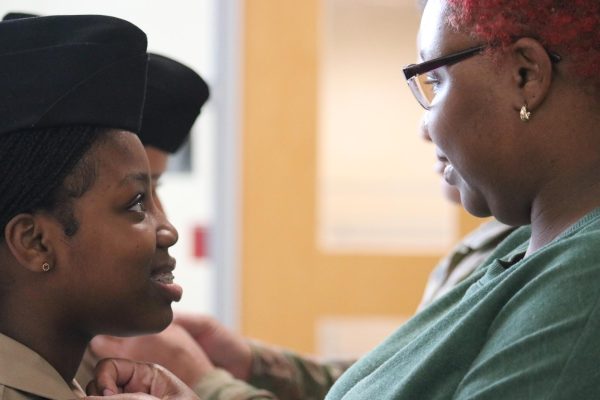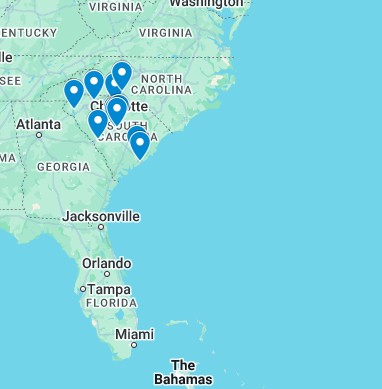Back to the basics: the first week of school
Early morning coffee, a mantra here, a checklist there, everyone had their own way of preparing for this new school year and with that, their own experiences. Students and teachers alike even now are reflecting upon the first week, each with their own criticisms and comments.
“I felt comfortable, like I was in a normal place. Like this is a place that i’d be accepted in,” said Charliyah Loe, freshman, “in my other schools I did feel like I was getting an education, but I didn’t feel too comfortable with other students or teachers and stuff like that.” She recounted. Loe, like many others, look back at the school’s general atmosphere in the starting week with fondness, highlighting the friendly and family-like atmosphere.
“It’s always great to be back home,” said Emmanuel Afrifa, social studies teacher, “I actually do love the kids here at RNE.” Afrifa also pointed out that he originally began teaching in New York city. Afrifa emphasized that here at RNE, students and teachers are able to connect more closely than what they did back at the other schools he’s taught at. “Teachers are more willing to have a conversation with the students here, allowing them to learn more.” Despite this, there are still things that can hinder a student from doing as well as they could.
“Overestimation and underestimation is one of the bigger mistakes you can make when coming back,” says Loe. She talked about how in her old school, asking for help was more difficult. Especially since there was pressure to do well in preparation for high-school.
One of many things Loe does is making sure that she has her work, checking her answers and making sure her work has organization. That being said, here are some tips for continuing the school year and finishing with style.
- Track Your Work
It’s a no brainier, though it still needs to be said: keeping a calendar or planner and keeping up with dates is one surefire way of keeping up with those due dates and special events. According to ‘allkindsofminds.org,’ keeping a schedule and meeting deadlines can help students in time management and reduce procrastination. If a student still needs a good planner for cheap, Office Depot is still currently having a clearance sale for certain planners left over from the season.
- Start small
When faced with a big assignment, it’s critical to break it up into pieces over the course of a few days prior to the due date. If you have an essay due on Monday, write a paragraph everyday and then review and edit Friday.
- Get a routine
The best way to tackle your work is to create a timed schedule surrounding your peak productivity. Humans weren’t meant to work for eight hours straight, and an extra four after work. The key is to pay attention to when you feel the most awake and motivated since the human brain remains focused from 90-120 minutes at a time, according to an infrographic released by a scientific study.
- Study everyday
Another cliche, but equally as important: studying everyday really does help since things like the Forgetting Curve exists. In order to properly retain information, you need to intake information bit by bit everyday. Not 25 vocabulary words in three hours, but 25 vocabulary words in three days.
- Learn from your bad grades
While it can be very discouraging to receive a bad grade, it’s important to know why and how you got the bad grade. This way, you can build up your next study session based on the mistake you made this time around.
Your donation will support the student journalists of Richland Northeast High School. Your contribution will allow us to attend conferences, purchase equipment and cover our annual website hosting costs.










